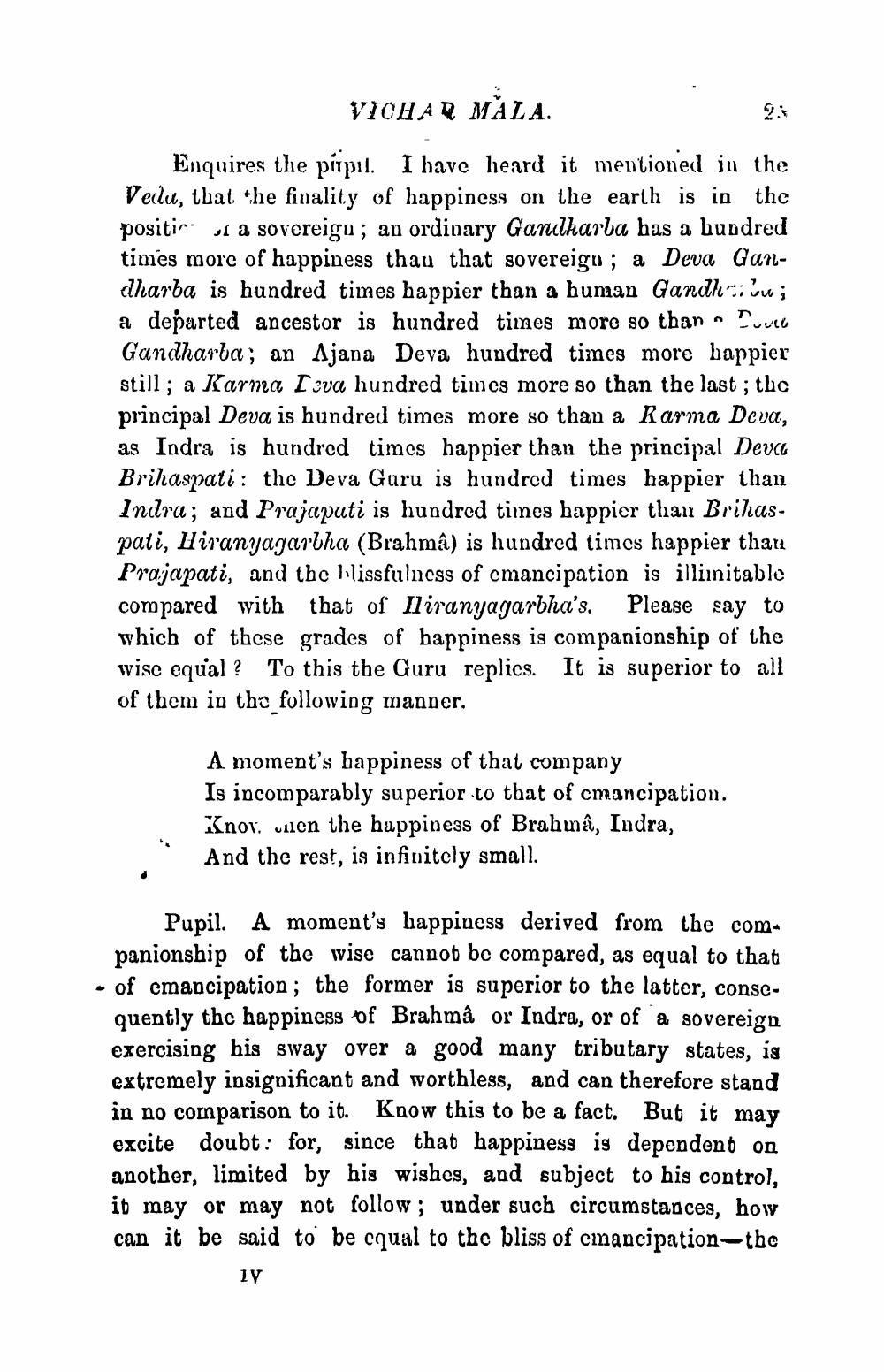________________
VICHAR MÅLA.
Enquires the pipil. I have heard it mentioned in the Vedlu, that he finality of happiness on the earth is in the positir a sovereigu; an ordinary Gandharba has a hundred times more of happiness than that sovereigo ; a Deva Gandharba is hundred times happier than a human Gandhi : ww; a departed ancestor is hundred times more so than puvia Gandharba; an Ajana Deva hundred times more happier still; a Karma Izva hundred times more so than the last; the principal Deva is hundred times more so than a Karma Deva, as Indra is hundred times happier than the principal Devc Brihaspati : thc Deva Guru is hundred times happier than Indru; and Prajapati is hundred times happier than Brihaspati, Hiranyagarbha (Brahmâ) is hundred times happier than Prajapati, and the hilissfulness of emancipation is illiinitable compared with that of Iliranyagarbha's. Please say to which of these grades of happiness is companionship of the wisc equal ? To this the Guru replics. It is superior to all of them in the following manner.
A moment's happiness of that company Is incomparably superior to that of cmancipation. Knov, ven the happiness of Brahunâ, Indra, And the rest, is infinitely small.
Pupil. A moment's happiness derived from the companionship of the wise cannot be compared, as equal to that • of emancipation; the former is superior to the latter, conse
quently the happiness of Brahmâ or Indra, or of a sovereign exercising his sway over a good many tributary states, is extremely insignificant and worthless, and can therefore stand in no comparison to it. Know this to be a fact. But it may excite doubt: for, since that happiness is dependent on another, limited by his wishes, and subject to his control, it may or may not follow; under such circumstances, how can it be said to be cqual to the bliss of emancipation-the




